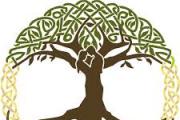A person for whom there are no authorities is called. We are the environment
Success is an idea realized. To create an idea you need to be different...
Personality awareness
The moment when you realize that everything can collapse and you begin to see yourself separately from others, to see that something is better, something worse, something different, in other words, you realize yourself not as a society, but as a separate part. So, the more complete the understanding of your “I” and that I am different, the more it develops the quality of a leader and self-esteem, which stimulates the generation of unique thoughts and ideas, as you stop following the rules and go beyond boundaries. I had a very serious injury as a child, and so in my case it happened very abruptly, when I just saw that I was suffering now, and everything was fine with others, that is, it seems that there is nothing special about it, but before it didn’t matter was given.Don't accept authorities
By recognizing someone as your authority, you admit that this person is better than you, thereby limiting your abilities. In other words, if you, for example, recognize Einstein as your idol and authority, you thereby impose the template of his life on yours, in other words, you recognize that everything should be this way and not otherwise, which limits your ideas and thoughts.We are the environment
Who we are is where we are. Without trying an apple, we will never know its taste. Everything affects each other equally; if you are constantly in a technical environment, then you are more competent in this topic than a person of art, but on the contrary, an artist knows more than you about art. That is, what we do and where we are shapes who we are. Due to the fact that everything in the world is interconnected, firstly you need to keep track of what you are doing, who your friends are and where you are and spend as much time as possible doing what you like, and secondly, always broaden your horizons and be interested in distant topics, according to opportunities to travel, communicate with different people, participate in different events. Knowledge gives you an advantage over others, so the better it is, the better you are. In other words, a person who spends time in the library and studying is of better quality than someone who wastes his life on a bench, due to the fact that his environment is more developed.Dream and be romantic
The idea is the most important thing, everything is born from it. Implementation is already a matter of technology. Ideas are directly dependent on your knowledge, so the more extensive they are, the more ideas you will have. Therefore, once again, you need to expand your horizons as much as possible. Be interested in science fiction, be interested in the thoughts and ideas of others, all of this together will give you your own ideas. An idea is like the first piece taken from there, the second from here, the third from somewhere else combined together. And most importantly, you should never be afraid to implement ideas, even if they fail, at least you will try, in addition, you should always strive for beauty, not profit. That is, the goal should not be to benefit from the idea, but to enjoy the beauty of its implementation.Ask, ask, ask
Never hesitate to ask questions, even if they are absurd and will cause laughter. It is much better to ask a question and understand the solution once and for all, than to be embarrassed and left with an unresolved problem.Try not to do business with friends
Cases cannot be based on prejudice. Business and business is like a game of chess, here you cannot sacrifice a life for the sake of a pawn, simply because the pawn is your friend. In the sense that when you do business with friends, the feeling of friendship will also leave an imprint on the outcome of the matter. That is, if you or your friend make a mistake, then the attempt at criticism will be of a personal nature, which will lead to a quarrel. Friendship based on business is better than business based on friendship (Rockefeller).Use a notebook
For me this is one of the basics. I use NoteMaster for Iphone. But the point is not in the program, but in the fact that it is always with me. That is, for example, I can wake up in the middle of the night and write down some thought or task. The fact is that depending on the environment we think differently, since everything around us has an influence. In the sense that if, for example, we do mathematics all day, our brain begins to think mathematically and generates corresponding ideas based on this, which will be different than if we study history or psychology all day. The fact is that our brain simply works differently depending on the situation, and often your ideas will later seem absurd as the brain’s work is reorganized. But the fact is that an idea is a kind of logical chain, and it cannot be bad, if you came up with it, then you saw some kind of logical chain, and even if later it seems erroneous. So the point is that you need to write down all the ideas and thoughts, since different ideas are useful for different issues and situations, that is, what you come up with one day will be useful in some environment specifically suitable for this idea. When it comes to tasks, I often forget what needs to be done. Therefore, if you write down tasks, you will never forget them and you will clearly see what to do.Money is a means, it is not an end
You need to have money to create things, not create things to have money. This is very important, the point is not to earn as much as possible, but to create something useful, so never make your goal and desire to earn money, strive to create something beautiful and useful, in which case the financial side will come by itself, as confirmation that You are on the right track.Happiness is an indicator, it is not a goal
There is no need to strive for happiness; we experience happiness when we do something right, as it seems to us. Therefore, you just need to create and create, and happiness is an indicator that you are on the right path.Art and Science
Everything in the world is interconnected. If you are doing something technical, then be interested in art, if you are an artist, then be interested in technical sciences. I belong to the technical group, and when I listen to classical music or look at artistic masterpieces, I see a certain dependence, an algorithm. The artist or composer created this algorithm without knowing it, based on feelings. For example, when I hear music, I interpret the melody as a collection of waves and individual parts working together, and the connection and algorithm by which they work together often gives me inspiration for applying that algorithm to writing code. Well, something like 11-22-11-22, 11-222-11-222 are different dependencies, and in music and art there are also dependencies.Everything strives for balance
Nothing comes from outside and nothing goes anywhere. That is, everything that exists has a purpose, so it is very important to understand cause and effect, not prerequisites, but precisely the cause, or rather even its root, in order to correctly make decisions. That is, you need to solve the root of the problem, and not its consequences; before taking action, you need to understand exactly the source of the difficulties.The more factors taken into account, the better
The more factors you take into account, the more accurate the result. Therefore, when making decisions, you need to take into account as many sources as possible that can influence the result. It works like a computer, if it's just a calculator, then you know one hundred percent that pressing 2 times 2 will be four, but the more complex the system becomes, the more processes need to be taken into account. That is, in any system it is possible to calculate a 100% correct solution, the only question is how many factors need to be taken into account. The less is taken into account, the less accurate the result.Don't waste your time
Focus on the main and important points, do not think about the little things. The less you think about different things, the better. That is, you need to concentrate on as few different tasks as possible. Since the transition from one task to another always requires a restructuring of thinking, which takes time and energy. If you see a mistake, don’t put it off for later, correct it immediately. Roughly speaking, when you see a mistake and put it off for later, you perform 3 or even 4 actions (you see the mistake, put it off for later, return to the mistake, remember what you’re talking about), and when you decide right away, the last 2 stages are removed, which saves time.Finish it to the end
If you start something, finish it to the end. It’s better to spend more time deciding whether it’s worth doing than to rush into it thoughtlessly and give up halfway through. If you undertake to do something, this should mean that possible options have been previously weighed and a decision has been made to implement it. In other words, once you take on something, there should be no turning back.Think
The most important thing is to plan, take into account the greatest number of factors, so before doing anything you need to spend as much time as possible on planning, think until all the steps and all possible difficulties are calculated and foreseen, which will ultimately save time and energy for patching patches. For example, I sometimes just sit and think/plan for hours and hours and do nothing else.Use the latest developments
Always try to use everything new. Even if you are used to some old program or old principles, you should always try new things. Having knowledge and skills in a certain area, learning something updated will take little time. For example, always have the latest versions of the programs you use, since updating them does not fundamentally change the structure, which means you will need a few minutes to understand the updates, but the benefits from the innovations will be greater.Control the process
You need to control the entire project from beginning to end, at least understand how it all works; if any part is missed, this will ultimately lead to problems, since you will make wrong decisions due to lack of knowledge.Don't be afraid of radical changes and failures
Only radical measures can achieve success, even if there are 9 failures and 1 success, but this success will more than cover them.The truth is what you say
It doesn’t matter whether it’s true or not, whether it’s good or bad, it all depends on how you present it. Anything can be made into candy and vice versa.Be tougher and rougher
I do not encourage drinking, smoking and swearing. The point is that you simply don’t need to go where you are not asked. There is no need to offer your help or your services if you are not asked for it, unless you see certain goals in this, because this simply will not be appreciated, since, in principle, you were not asked for this, if necessary they will ask. In the sense that if you see someone else’s problem and know how to solve it, but they don’t ask you for help, then you don’t need to get involved, it’s better to focus on your own affairs.Communicate with those who are better than you
Again, this is a question of balancing. That is, if you are competent in some matter and communicate with a person who is not particularly knowledgeable here, then in essence there is no benefit to you from this, only a waste of time and, on the contrary, it will benefit your opponent.Never say it's too much, I can't do it, I don't know it
Some psychological tests include questions such as how many people are easier to control: 5 or 5000? The correct answer is the same. The point is that the input and output data do not matter, it is the algorithm, that is, the approach. You just need to organize the work correctly and it doesn’t matter what data you operate with. Same with the questions “I can’t” and “I don’t know.” If you are a leader, then you can’t say that. Firstly, because if you are the boss, it means you know everything, in the sense that if you hesitate or say “I don’t know” when answering a subordinate’s question, then the subordinate loses authority towards you. Secondly, “I can’t” and “I don’t know” are relative concepts. That is, for example, to the question “Can you fly an airplane?” The correct answer is “Yes, if I go through flight school.” The point is to understand the real connection.Have an ego and high self-esteem
Even if it does not correspond to your real status, the point here is that if you position yourself as saying “I know a lot,” then people will try to reproach you at any convenient moment when you make a mistake, and accordingly, understanding this will encourage you to make as fewer errors possible. A very important point, even if you see that you are superior to a person, even in everything, and you are 100% sure of this, never insult or belittle him, never put yourself higher than others, even if you are actually better than others. The fact is that there is a self-defense reflex here; no one will ever admit that he is worse than you. Therefore, if you try to impose your opinion with aggression, it will not work, even if the person himself realizes that he is wrong, he will never tell you this.Support the weak
Always support those who have problems and those who are weaker than others. For them, your support is much more important than for a person who is strong without you. Therefore, if you helped a weak person, it is of great importance to him and he will give you even greater returns, since this is important to him. If you support a strong person, then not only does it matter little to him, moreover, he may think that you are doing this to gain benefit, in which case the result will be the opposite.Take responsibility
If you are afraid to take responsibility, you will never be able to lead. You need to be able to make decisions, even if they may turn out to be wrong. The point is that you need to understand what benefits this can bring and what the consequences may be. It's better to make a wrong decision than no decision at all.Don't leave any unresolved issues
Everything must have a beginning and an end, so when you set a task for yourself or someone else, everything must be agreed upon so that no questions can arise. Firstly, the task should be the simpler the better, in the sense that it should not touch on various topics if possible. For example, “Go to such and such a store today and buy such and such bread” and “Buy bread.” In the second option, many questions may arise (Where? When? Which), so you need to try so that secondary questions do not arise when posing the problem.Through hardship to the stars
Abstain from as many things as possible and suffer as much as possible. Roughly speaking, the meaning of human existence is creation. That is, the ideal option is when you do nothing but create something. But since the world is not perfect, we have to reckon with it. This especially applies to your feelings and emotions. Try to abstain from women and feelings as much as possible. This also applies to alcohol, tobacco and other things. For example, I don’t drink, don’t smoke, and I’m vegan. But once a month I can drink a glass of vodka or beer, and I do this as a counterbalance to the existing problems. That is, for example, if some problems befall me, I can drink in order to compensate for the negative mood from the problems with the positive mood of alcohol, in other words, for the sake of this balance, I will return myself to normal again. That is, there is no need to do this for no reason, and the question is not about health or anything, but that there is simply no reason for this, roughly speaking, people start drinking and smoking because of problems, but if you control everything, then there will be no problems. The wiser a person is, the fewer things he needs. As for suffering, it is often mentioned in religion, Buddhism. The point here is that suffering stimulates creation. Roughly speaking, if you don’t have problems, then there’s nothing to solve. And if they exist, it forces you to develop. Labor made man. So, suffering means imposing limitations on oneself in order to artificially stimulate development in oneself in order to overcome the created difficulties. Therefore, when you limit yourself in something, you stimulate yourself to create.Conclusion
The leader of any project must be better than others, both visually and actually. The more unusual you are, and, accordingly, the more versatile your knowledge, the more influence it has on others. There is a direct dependence here, since a person sees the lack of this knowledge in himself and begins to respect you and show interest, for the reason that he can get this knowledge from you. Therefore, the more different knowledge you have, the better you understand the surrounding processes (since everything in the world is interconnected), and therefore you understand more than others, and as a result, you know and can do things that others do not know."He has authority." "You are in authority." "You are my authority." What familiar phrases. When we resort to them, we don’t even think about what this word means. Let’s talk today about the signs of authority in more detail. Let's look at this concept and find out how authority is achieved.
Concept
Authority has several meanings. In the broadest sense of the word, this is significance and power based on it. In a narrower sense, it is an inciting action to recognize superiority, thanks to some outstanding merit.
Who is the authority?
An authoritative person is someone who has been recognized for some mental merit, his moral qualities, or outstanding achievements in a particular area. An important criterion is the non-violent influence of authority on society.
Types of Authority
Official. It is determined by the official position of the person and the position he occupies.
Moral. Depends on personal qualities.
Professional. Its basis is the competence of a specialist in his field of activity.
Collective. It can rather be attributed to army and military service.
Individual. Depends on the individual who is its carrier.
True. Based on the high moral qualities of the one who gains this type of authority. Actions in accordance with moral standards are the main criterion for such a person.

False authority
If there is a true authority, then there must be an imaginary one. Or false. An authoritative person is one who strives to gain true authority. Because the false one looks funny and pathetic. The wearer does not have a feeling of satisfaction from this status.
The authority of distance. It is expressed in the need to always know and control everything, not allowing anyone to relax even from a distance. At the same time, a person prefers to stay aloof from everyone, being something inaccessible and mysterious to people.
The authority of swagger. A person with this subtype of false authority usually does not care about others. He does not delve into other people's needs and requests, showing with all his appearance how insignificant those around him are. And he is the only significant figure.

How to develop a skill?
The formation of this skill requires constant work on oneself and a revision of one’s previous position in life. You have to get rid of old habits, get out of your own comfort zone and say goodbye to people who are dragging you down.
In general, as in any other work, when working on yourself, you cannot be lazy and sit still, postponing the start of a new life until tomorrow.
So, where does skill formation begin? The first stage is goal setting. You need to firmly decide what your ultimate goal is, what you want.
A simple example. The man decided to lose weight and switch to proper nutrition. But his family doesn’t understand him, they make fun of him about this and constantly suggest that he eat a sandwich with butter and cheese rather than suffer through nonsense. It’s hard for a person psychologically; giving up what you’re used to is always stressful. And it is clear that at the first stage support is required. But here she is not, rather the opposite.
What to do in this situation? Move away from your usual surroundings and find like-minded people. For example, register on a healthy eating forum or a selected diet. You can go to the gym and make friends.

Second stage
Over time, achieving your goal becomes a habit. A person calmly gets up in the morning to go for a run, and can refuse a sandwich without a twinge of conscience. He doesn't care what people think about him. A man goes towards his goal. It is quite possible that loved ones, seeing how persistently a person goes towards his goal, will begin to reach out for him. This is how authority is born.
Instead of gatherings over evening dinner, the whole family goes for a walk. Weekends are spent not in front of the TV, but on skis/skates/bicycles, depending on the time of year. Friends notice the changes and begin to join this family. A team of like-minded people is being formed.
Third stage
Strengthening authority. A person is passionate about a healthy lifestyle. He begins to carefully study this topic. Understand it more deeply. For example, he selects exercises that can be performed with various injuries, and is able to create his own diet.
The authority of the leader
Be polite to your subordinates, but maintain distance in relationships. An eternally dissatisfied boss who allows himself to raise his voice over every little thing will not become an authority for people. Subordinates will remain silent, but internal “sabotage” will not be long in coming.
Don't let them sit on your neck. In other words, maintain distance in the boss-subordinate relationship.
An authoritative person is one who understands his activities. The boss must know the job inside and out. Because the subordinate will be able to approach him with peace of mind if a problem arises, knowing that they will help, advise and will not yell at him. It is pleasant to go to such a leader, it is pleasant to listen to him and carry out given instructions.
There are rules for everyone. And no one violates them. That is, if the organization prohibits going out to smoke and is fined for it, the manager does not stand on the porch with a cigarette. Rules are rules.
Eliminate the pendulum effect. Today the boss wants the work to be done according to one algorithm, and two days later he radically changes the system. It is unlikely that subordinates will respect a person who has seven Fridays a week.
A leader has obligations to his subordinates. And they need to be fulfilled. You shouldn't take on an impossible mission.

Authoritative qualities
- Knowledge. People are respected for their knowledge and ability to understand a particular industry “from hair to toe.”
- Wisdom. A sage will be able to give important advice and look at the situation from the right angle.
- Responsiveness. The ability to come to the rescue, combined with the two points stated above, being there at the right time is the key to getting people to respect and reach out to you.
- Kindness. You can be smart and wise, but use these skills as if the people around you are insignificant worms. Will such a sage and clever man be respected?
- Volitional qualities. We have come to where we started. Working on yourself and achieving your goals is an example for others.

World authorities
According to 2017 data, the richest and most influential person in the world is Jeff Bezos. He is the founder of the online retailer Amazon.
The second place in this “hit parade” is occupied by the world-famous Bill Gates.

The third place goes to investor Warren Buffett.
And closing the magnificent five is Mark Zuckerberg, the creator of the most popular social network Facebook.
Conclusion
Authority is a practiced skill. There is no need to think that it is impossible to achieve. Perhaps - if you constantly work on yourself. People are drawn to strong and extraordinary individuals who can understand problems thoroughly.
The author of the statement raises the problem of reasons for following moral standards. Mikael Lazarevich Nalbandyan believes that a person can be called moral when he acts in accordance with moral standards, not out of fear of public opinion or the likelihood of violent coercion, but according to personal conviction in the correctness of existing standards. The secret of the stability of society lies in the consciousness and solidarity with which a person observes moral norms.
Moral norms are used in society as a means of regulating relationships in it, representing a set of unwritten rules accepted by the majority of people.
The mechanism for maintaining stability and order in society through moral norms has two directions: from the outside and from within the individual himself. In the first case, the people around the individual and social institutions influence him using social sanctions; in the second, the person regulates his activities based on the dictates of conscience and personal beliefs. These two areas are interconnected and interdependent. If a person is influenced from the outside without internal agreement with moral standards, then the mechanism for maintaining order becomes unstable. If internal beliefs exist without external influence, then a person’s behavior can be regarded as deviant, since other members of society behave differently.
Thus, the author’s idea about the conditions of human morality is confirmed by events from the history of Russia. In the Russian Empire, people dissatisfied with the tsar’s policies and their socio-economic situation staged uprisings, created underground revolutionary circles, that is, they violated the law, which eventually grew into the February Revolution and the overthrow of the autocracy. On the contrary, in the Soviet Union, during a certain period of its existence, people observed the moral rules of Soviet society, because they were convinced of the correctness of the party line, believed in the ideals of communism, which everyone strived for, which made the USSR a strong power that defeated fascism in the Second World War and raised economy to a qualitatively new level.
From personal social experience, one can cite the example of a person’s behavior in a supermarket. He realizes that, most likely, the security officer is not watching him from the surveillance cameras. He, in fact, has the opportunity to steal goods without being punished for the offense. However, a person who understands that her conscience will torment her if she violates her convictions acts consciously and does not commit theft. A person shows solidarity in relation to established norms, since he does not want to be robbed himself; he understands the correctness of their existence.
Thus, a moral person is primarily guided in behavior by inner consciousness and solidarity. If an individual is dissatisfied with something in society, he will find a way to circumvent the objectionable norm, whereas it is the conviction in the correctness of moral norms that really ensures the stable functioning of the social system.
Updated: 2018-02-14
Attention!
Thank you for your attention.
If you notice an error or typo, highlight the text and click Ctrl+Enter.
By doing so, you will provide invaluable benefit to the project and other readers.
An authority is a person distinguished by outstanding knowledge, skills, abilities and abilities, his position in society and his significance for humanity or for a person.
Who do you consider an authority? Seneca, because everything he says remains relevant in modern times? Putin for “raising Russia from its knees”? Grandma, because no one will give wiser advice? Do Russians need moral authorities, experts from the Public Opinion Foundation found out.
It turns out that half of our fellow citizens have had to be disappointed in an authoritative person. At least 49 respondents answered the question this way. Well, in any case, the glass remains half full - its authorities have not yet managed to disappoint the other half of Russia.
56% of the total number of respondents said that in their immediate circle there are people who are authorities for them, but 40% of their fellow citizens, fortunately or unfortunately, do not have them. At the same time, an affirmative answer to this question was most often given by young people who really need a guide in life: 70% of respondents aged 18 to 30 have authority among close people. Elderly people, accordingly, no longer need any authorities: only 37% of respondents gave an affirmative answer.
“Do you often or rarely consult with these people and ask for their opinions on issues that are important to you?” This question was the next on the list of questions asked for those who do not have moral authorities in their immediate environment; 60% of respondents answered it. It turned out that 28% of 60% often consult with authorities, a little less - 25% - do this rarely, and 5% of respondents never consult with anyone.
41% of respondents do not have authority among their colleagues or co-workers, 37% do, 18% of respondents do not work at all, and 3% of respondents found it difficult to answer this question.
An amazing pattern: not all people willingly recognize someone’s authority, but the self-esteem of Russians is off the charts. More than half of Russians believe that among their relatives, friends and colleagues there are those who consider them a moral authority for themselves, and only 17% answered that there are none.
Three-fifths of the Russian population have authorities among famous people of Russia - cultural figures, scientists, politicians, athletes, etc. Moreover, among the young population (18-30 years old), only half consider a famous person to be an authority. If we look at the ages of 46-60 years, then 70% of respondents consider some famous Russian to be an authority, and 75% of people over 60 years old have the same opinion.
Every third Russian considers Vladimir Putin a moral authority, with p. Lavrov (6% of respondents), in third place is S. Shoigu (5%). Zhirinovsky is preferred by 5% of Russians, Medvedev and Mikhalkov - 3% each, Zyuganov - 2%. Patriarch Kirill, Stalin, Churkin, Emelianenko, Tretyak, Primakov, Ivanov, Kadyrov, Rogozin, Solovyov and Pozdner have one percent each.
About 40% of Russians believe that in modern Russia there are fewer famous people who can be called authorities (unlike the 70-80s of the last century). Every third respondent, on the contrary, believes that now there are much more authorities among celebrities, 11% believe that there are the same number of them, and 20% found it difficult to answer.
The vast majority of people believe that people need moral authorities - 84% of 100% of respondents who answered this way. Half of these people believe that a person needs a role model, a guideline to which they strive. 10% of respondents think that everyone should have a person with whom they can consult and who is worth listening to. 8% believe that this is necessary for moral support, 7% think that people should have a leader who will lead others. Other answers: “This is necessary for making the right decisions,” “Without moral authority, people degrade,” “People must have moral values,” “There must be moral authorities,” “People must believe in something.”
Our fellow citizens for the most part believe that people who have moral authorities have a better life than people who do not know who to look to. However, if you break down the answers by age, then people from 40 to 60 years old think just the opposite - that people who do not have authority have a much easier life.
Writer Kazuo Ishiguro said: “Even if one is supposed to look up to one’s teachers, it is equally important to learn to question their authority.” The majority of Russians share the same opinion - 77% of respondents believe that in difficult situations it is better to rely only on oneself, rather than relying on the opinion of moral authorities.
55% of Russians believe that among their relatives, friends, and colleagues there are those who consider them their moral authority; Among young people, 66% are sure of this. Who has an easier life: those who have moral authorities, or those who do not? Opinions are divided: 35% of Russians believe that it is easier for those who have someone to look up to, 32% - that life is easier for people without such reference points. 49% of respondents were disappointed in an authoritative person, while exactly the same proportion were not.
download data
TeleFOM is a representative survey of the population aged 18 years and older. 1000 respondents participated in the survey. Telephone interview using a random sample of mobile and landline phone numbers. 320 cities, 160 villages. The statistical error does not exceed 3.8%.
Are there people in your immediate circle who are moral authorities for you, or are there no such people?
DATA IN % OF GROUPS
Do you often or rarely consult with these people, ask for their opinion on issues that are important to you?
DATA IN % OF GROUPS
The question was not asked to those who have no moral authorities in their immediate environment, answered 60% of respondents
Are there people among your colleagues and co-workers whose opinion is important to you, who is your moral authority, or are there no such people?
DATA IN % OF GROUPS
Do you think that among your loved ones, friends, colleagues there are those who consider you a moral authority for themselves, or are there no such people?
DATA IN % OF GROUPS
Among the famous people of Russia - cultural figures, scientists, politicians, athletes, etc. - is there anyone who is a moral authority for you, or are there no such people?
DATA IN % OF GROUPS
Which famous person in the country is your moral authority? Please name no more than five names.
DATA IN % OF RESPONDENTS
Open question. Asked to those who have moral authorities among famous people, answered 60% of respondents
Do you think there are more, fewer, or the same number of famous people in Russia today who are recognized moral authorities as there were in the 70s and 80s of the last century?
DATA IN % OF RESPONDENTS
Do you agree or disagree with the view that people fundamentally need moral authorities?
DATA IN % OF RESPONDENTS
Why do you think humans need moral authorities?
DATA IN % OF RESPONDENTS
Open question. Asked to those who believe that people need moral authorities, answered 84% of respondents
In your opinion, who has an easier life - people who have moral authorities, or people who do not have such authorities?
DATA IN % OF GROUPS
Do you think, when making choices in difficult situations, is it better to rely only on yourself or is it better to rely on the opinions of moral authorities?
DATA IN % OF RESPONDENTS
Have you ever been disappointed in a person who was your moral authority, or has this never happened?
DATA IN % OF RESPONDENTS
Data source: TeleFOM - a telephone survey of Russian citizens 18 years of age and older using a random sample of mobile and landline phone numbers. July 6, 2014. 320 cities, 160 villages. 1000 respondents. The statistical error does not exceed 3.8%.














